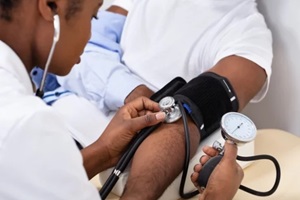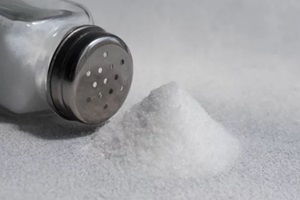 High blood pressure is a highly common health problem that affects over 122 million adults in the U.S. alone. However, many people don’t implement blood pressure management strategies because they don’t even realize they have a problem, as there are often no obvious symptoms.
High blood pressure is a highly common health problem that affects over 122 million adults in the U.S. alone. However, many people don’t implement blood pressure management strategies because they don’t even realize they have a problem, as there are often no obvious symptoms.
Uncontrolled hypertension can cause serious problems such as heart attack, kidney issues, stroke, and cardiac failure. However, lifestyle modifications can go a long way in getting your blood pressure under control and reducing your risk of problems down the road.
Here are some practical measures you can employ.
Lose Excess Weight
One of the most impactful lifestyle changes for lowering blood pressure is losing extra weight, especially belly fat. The more overweight you are, the higher your blood pressure tends to be.
Losing just 3-5% of your body weight can create measurable improvements in blood pressure. For instance, if you weigh 200 pounds, losing 10-15 pounds can potentially bring your blood pressure numbers down significantly.
Exercise Regularly
Getting regular physical activity is essential for blood pressure management. Try to get at least 30 minutes per day of moderate exercise, such as fast walking, dancing, swimming, or biking. The key is keeping your heart rate elevated moderately during the activity.
Additionally, strength training and weight lifting are great for lowering blood pressure. Try to incorporate resistance movements that engage all major muscle groups at least twice a week.
Follow a Healthy Diet
The foods you eat directly impact your blood pressure, so it’s advisable to eat a diet rich in fruits, veggies, seeds, nuts, whole grains, legumes, lean protein, and reduced-fat dairy.
These nourishing foods are full of blood pressure-friendly nutrients, including potassium, calcium, and magnesium. Limit saturated fat, sugar, sodium, alcohol, and processed foods.
Reduce Salt Intake
 Decreasing your sodium or salt intake can make a big difference in effective blood pressure management. Salt makes your body retain extra fluid, so the more you eat, the more your blood pressure rises.
Decreasing your sodium or salt intake can make a big difference in effective blood pressure management. Salt makes your body retain extra fluid, so the more you eat, the more your blood pressure rises.
Limit your total daily sodium consumption to less than 2,300 mg, with an ideal intake of around 1,500 mg. Avoid adding extra salt to foods and try to minimize processed foods, which tend to be very high in sodium.
Limit Alcohol
Drinking more than a moderate amount of alcohol can result in higher blood pressure. It’s important not to consume excessive amounts of alcohol, particularly if you have hypertension.
For healthy adults, that means a maximum of a single drink per day for women and two for men. One drink is defined as 12 ounces of beer, 5 ounces of wine, or 1.5 ounces of distilled spirits.
Quit Smoking
If you smoke or use other tobacco-based products, quitting is essential for your blood pressure and overall cardiovascular health. Tobacco damages blood vessels, makes your heart work harder, and causes immediate blood pressure spikes.
Quitting smoking may be extremely challenging, but it offers immense benefits for your blood pressure and reduces your risk of heart attack and stroke.
Improve Sleep Habits
Poor sleep habits can contribute to hypertension. Be sure to get seven to eight hours of quality sleep per night and treat any underlying sleep disorders such as obstructive sleep apnea.
Try to maintain a consistent sleep schedule, lower screen time before bed, don’t drink caffeine too late in the day, and create a restful and relaxing sleep environment.
Manage Stress
Chronic stress can disrupt hormone levels and blood pressure regulation. Find healthy ways to manage life’s stressors through exercise, sufficient sleep, relaxation practices, therapy, or social support.
Set aside time each day to recharge through activities you enjoy. Learning stress management skills such as mindfulness meditation, progressive muscle relaxation, tai chi, and yoga can help reduce your overall stress load and anxiety.
Check Blood Pressure at Home
Home monitoring allows you to keep close tabs on your blood pressure and document your progress. Purchase a validated upper arm cuff monitor and test your blood pressure at the same time each day.
Checking your numbers over time lets you see what’s working and ensure your lifestyle changes are effective.
Get Support
 Having support from loved ones can help you maintain motivation for lifestyle changes. Consider inviting friends and family members to exercise with you, cook healthy meals together, or remind you to take your blood pressure medication.
Having support from loved ones can help you maintain motivation for lifestyle changes. Consider inviting friends and family members to exercise with you, cook healthy meals together, or remind you to take your blood pressure medication.
Becoming part of a support group is also excellent for inspiration and camaraderie.
Develop an Effective Blood Pressure Management Plan with Imperial Center Family Medicine
While it may seem challenging, you have the power to take control of your blood pressure through lifestyle improvements. Committing to these practical steps can get your numbers headed in the right direction and reduce your risk of complications down the road.
If you need more help with blood pressure management, Imperial Center Family Medicine specializes in evidence-based treatment.
Our healthcare experts are highly experienced in working with patients to lower their blood pressure through medication management, lifestyle coaching, and careful monitoring.
If you need an expert you can trust for blood pressure care, contact us today at 919-873-4437 or online to book a consultation.
